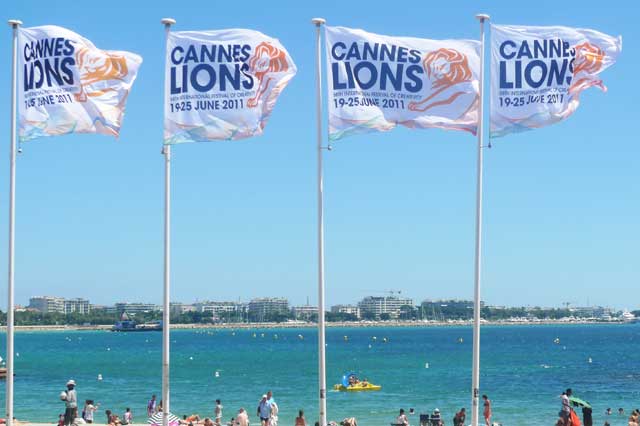
I was recently invited by Paul Bainsfair to talk about where the UK is heading in terms of creativity, measured by its performance at Cannes. I appreciated the invitation because the UK industry - despite the fact that, as a business, Cannes Lions is based in Camden - hasn't historically been much bothered about the global picture, in stark contrast to, say, Brazil, India, China or even Germany, which are extraordinarily interested in such things.
I once spoke at a UK industry event shortly after I joined the festival, and was banging on about how much there is to learn at Cannes, when I was interrupted by a high-profile figure. "I don't think you're quite aware of who your audience is," he told me. "We are the best in the world, and you think we are going to sit in a room in Cannes and find someone from India telling us something we don't know?"
I believe things have genuinely changed since then. The swagger has receded a bit, partly because of the misconception that the UK is being overtaken by newcomers in winning global awards and that 2011 was a disaster for this country at Cannes. Not so: 2011 was the most successful year ever for the UK industry, which hauled back no fewer than 75 Lions across nearly every category, losing out to only the US (140 Lions) and Germany (79). Look a little deeper, though, and it starts to get interesting.
Winners are now coming from a bewildering variety of new places. In the past five years, Lions have been won for the first time by Guatemala, Vietnam, Costa Rica, Egypt and many others. Grands Prix were won in 2011 by three countries that had never won them before - Romania, China and South Korea. The network agencies in these places are forging ahead, giving their creatives the freedom to experiment and finding success that has eluded them for the 59-year history of the festival, often in more "traditional" categories such as outdoor and print.
On the other end of the spectrum are the independents from the US, dominating the forward-looking Cyber and Titanium and Integrated categories - the likes of Droga5, Crispin Porter & Bogusky, Wieden & Kennedy and even Google Labs. Indeed, in the past two years, the UK has won just two Titanium and Integrated Lions; the US has won 14. So if developing countries are honing their skills on brilliant print campaigns and the US is way ahead on digital and integrated thinking, where does that leave the UK? Not failing, that's for sure - you don't win 75 Lions by accident - but standing for what?
Looking deeper, other holes appear. No Radio Lions. Two in Press. One in Promo & Activation. Overall, just one Grand Prix (in Creative Effectiveness) and no gold Lions at all in Film, Press, Radio, Promo, Titanium or Direct. It's a complex picture, and the overall number of Lions the UK won masks some interesting questions.
The reason creativity matters, of course, is pretty obvious. In his book, The Case For Creativity, James Hurman tracks the share price of Cannes Lions' Advertiser of the Year winners during the lead-up to their success. Without exception, they enjoyed their highest share price, biggest gains and most competitor-smashing results when they were producing their most creative work - Procter & Gamble, Nike, Volkswagen, Swatch, Honda ... the list goes on.
Clients have come to the rather compelling conclusion that, given the choice between creative work and work that sells their stuff, they will have both. And, by the way, the chief executive is now interested because it seems to affect their share price too. That's why they come in their thousands to Cannes, searching for who is doing the best work. They see it from the hot shops of the US and they see places such as the Dominican Republic, Serbia and Lebanon starting to flex their creative muscles. What does this mean for the UK? Does it mean the UK has to find a role for itself in the new world order?
The UK creative industry has, to a large extent, lost the arrogance that I heard that day back in 2006 but, at the same time, should be confident of its place in the world - there is incredible talent here and 75 Lions are more than most countries win in ten years of trying. The question is, as clients value creativity more and more, digital becomes centre stage and new economies power ahead to deliver outstanding work, should the UK be worried? You could ask the question as a brand owner would: what does the UK industry want to be famous for?
Philip Thomas is the chief executive of the Cannes Lions International Festival of Creativity.
HOW TO WIN AT CANNES
- Read the categories carefully Entering into the right section and the right category is critical.
- Check the advice on the website There are "tips and hints" videos and a white paper on Creative Effectiveness Lions.
- Keep the videos to time Juries judge thousands of them, so keep the videos less than two minutes and build a simple, compelling case.
- Culture As the juries are international, if an entry hinges on a cultural nuance, make sure it is clearly established from the outset.
- Context Avoid broad, sweeping statements, jargon and hyperbole. Keep the presentation clear, concise and factual.

